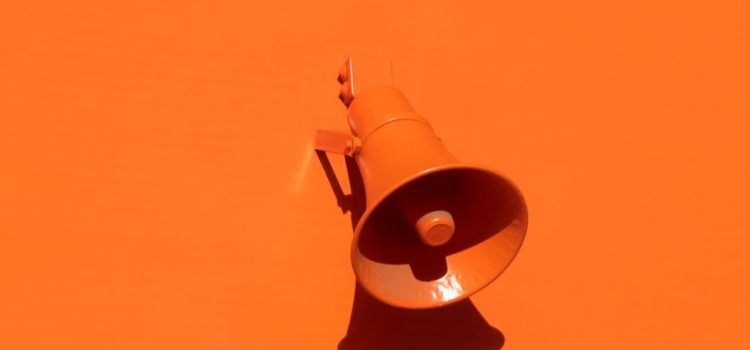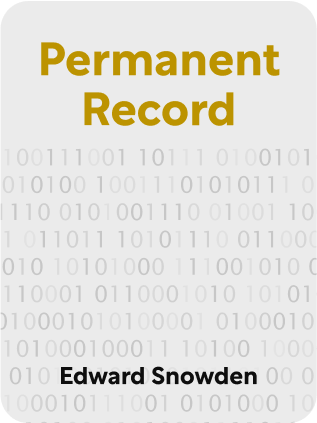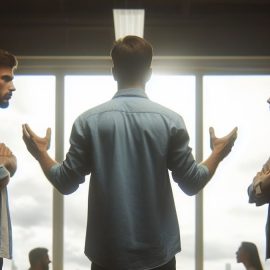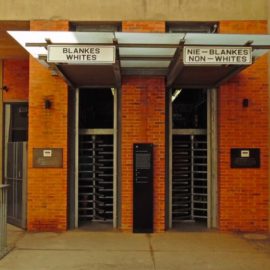

This article is an excerpt from the Shortform summary of "Permanent Record" by Edward Snowden. Shortform has the world's best summaries of books you should be reading.
Like this article? Sign up for a free trial here .
Are there different types of whistleblowing? Depending on the type of whistleblowing, is there a different level of whistleblower protection? What are some whistleblower examples?
When thinking about how to blow the whistle, Edward Snowden considered different types of whistleblowing. Read about his process for how to blow the whistle.
Types of Whistleblowing That Wouldn’t Work
Once Ed had decided to act, he had to figure out how to blow the whistle. Ed couldn’t simply pursue the type of whistleblowing in which you talk to someone higher up the chain of command because the highest authorities knew—and had authorized—mass surveillance. That kind might have whistleblower protection, but Ed decided he needed an institution or a person to release the information to prove authenticity, mitigate his biases, and help explain the information.
Whistleblower Examples of Methods
He considered self-publishing (posting the docs online and sharing a link), but while it would have been the safest and easiest, he rejected it because it didn’t lend him enough authority. He considered WikiLeaks, but felt this would be too much like self-publishing—WikiLeaks would simply present the documents, unredacted and without context.
The problem with self-publishing or anything like it was that the internet is filled with conspiracy theories. People on the Internet are always claiming to be leaking top-secret information, and he didn’t want anyone to think he was just another conspiracy theorist. Additionally, no one would understand the documents without context. Ed had to offer that context.
How to Blow the Whistle? With a Journalist
Ed decided a journalist was the best type of whistleblowing for him. He set to getting in touch using encrypted emails. Additionally, Ed used other people’s Internet connections. However, he couldn’t use free public wifi at a cafe or library for two reasons. First, in public places, he’d be recorded by security cameras or seen by other people. Second, every wireless device has a unique Machine Address Code (MAC). Wifi networks store the MACs of every device that connects to them, so his connection would be traceable.
To get around this, he went “war-driving.” War-driving involves driving around looking for wifi connections. All you need is an antenna, GPS sensor, and laptop. The antenna helps you find wifi and the GPS sensor tells you where you’ve found it. Ed’s laptop used an operating system called TAILS, which erases anything he’d ever done on it the moment he shut it down. He used TAILS to hide the laptop’s MAC address and used Tor. Sometimes Ed had to break into other people’s wifi, but often it wasn’t secure or minimally secure.
Are Some Types of Whistleblowing Better Than Others?
Interestingly, the law doesn’t care if you share classified information with your enemies or the press, or why you do so. The punishment is the same. The only distinction Ed ever encountered was in his Indoc to the intelligence community, when he was told that selling enemies secrets is slightly better than sharing them with the press because at least the enemy won’t tell the public.
Whistleblower Examples and Legislation
The first whistleblowers were sailors on the Warren in 1777. Their Warren was commanded by Commodore Esek Hopkins, who refused to fight in the Revolution, treated prisoners badly, and in general wasn’t fit for command. (He was also the Continental Navy’s commander in chief.) Ten sailors from the Warren wrote to the Marine Committee, the highest level in the chain of command, letting them know what Hopkins was doing. These sailors are early whistleblower examples. Hopkins took legal action—a criminal libel suit—against two of the officers who had written to the Marine Committee.
Whistleblower Protection Legislation
Before the trial started, another sailor brought the issue to the Continental Congress. The Continental Congress was horrified by the idea that someone could dismiss a serious complaint as libel and enacted a law to protect whistleblowers. If someone in the government was misbehaving, authorities wanted to know about it—speaking up was a duty. Some types of whistleblowing get whistleblower protection.

———End of Preview———
Like what you just read? Read the rest of the world's best summary of Edward Snowden's "Permanent Record" at Shortform .
Here's what you'll find in our full Permanent Record summary :
- What Ed Snowden discovered that caused him to completely lose faith in the government
- How Snowden led the bombshell reports of US mass surveillance
- How Snowden is coping with his treatment as both patriot and traitor






